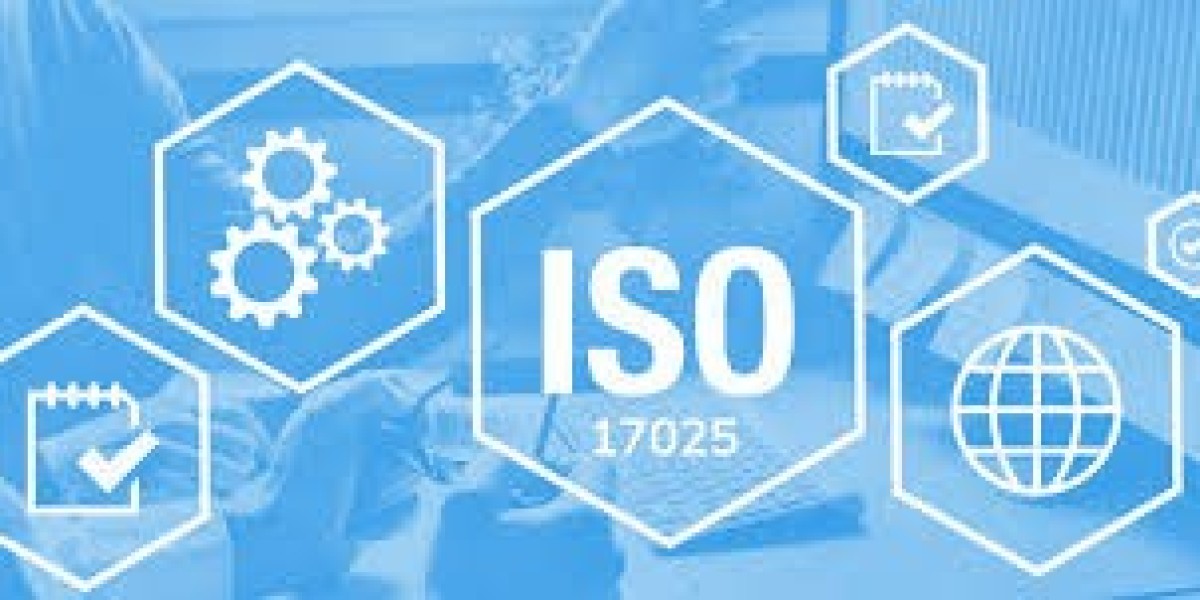ISO 17025 Training: Elevating Competence and Quality in Laboratories
ISO 17025 is an international standard specifying the general requirements for the competence of testing and calibration laboratories. Recognized globally, it plays a crucial role in ensuring the accuracy and reliability of laboratory results. Achieving ISO 17025 accreditation involves rigorous training, which equips laboratory personnel with the necessary knowledge and skills to comply with the standard's requirements. This article delves into the significance of ISO 17025 training, the key components of an effective training program, the challenges faced during implementation, and the broader impact of ISO 17025 accreditation on laboratories and industry.
The Significance of ISO 17025 Training
ISO 17025 training is pivotal for laboratories aiming to achieve and maintain accreditation. It provides a structured approach to understanding and implementing the requirements of the standard, ensuring that laboratory personnel are competent and capable of producing valid and reliable results. The training encompasses various aspects, from technical procedures to quality management systems, embedding a culture of continuous improvement and compliance within the laboratory environment.
One of the primary benefits of ISO 17025 training is the enhancement of technical competence. The standard demands a high level of proficiency in specific testing and calibration methods, which necessitates thorough training. Laboratory staff must be adept at performing complex procedures, understanding the principles behind them, and troubleshooting any issues that arise. This technical expertise is crucial for maintaining the integrity of laboratory results and building trust with clients and stakeholders.
Additionally, ISO 17025 training fosters a comprehensive understanding of quality management principles. Laboratories must establish and maintain a quality management system that meets the standard's stringent requirements. Training programs cover essential topics such as document control, internal audits, corrective actions, and risk management. By integrating these principles into their daily operations, laboratories can ensure consistent quality and continuous improvement.
Moreover, ISO 17025 training enhances the laboratory's credibility and reputation. Accredited laboratories are recognized for their commitment to quality and competence, which can lead to increased client confidence and business opportunities. In many industries, ISO 17025 accreditation is a prerequisite for conducting specific tests or calibrations, making training an indispensable investment for laboratories seeking to expand their market reach.
Key Components of an Effective ISO 17025 Training Program
An effective ISO 17025 training program is comprehensive, well-structured, and tailored to the specific needs of the laboratory. It should cover both the theoretical aspects of the standard and practical applications relevant to the laboratory's operations. The following are key components that constitute a robust ISO 17025 training program:
- Understanding ISO 17025 Requirements: The training should begin with a thorough overview of the ISO 17025 standard, explaining its structure, principles, and specific requirements. Participants should gain a clear understanding of the standard's scope, including the management and technical requirements that laboratories must fulfill. This foundational knowledge is essential for contextualizing subsequent training modules and ensuring cohesive implementation.
- Quality Management Systems (QMS): A significant portion of the training should focus on developing and maintaining an effective QMS. This includes training on document control, management reviews, internal audits, corrective and preventive actions, and risk management. Participants should learn how to create, implement, and continually improve a QMS that aligns with ISO 17025 requirements. Practical exercises and case studies can be employed to illustrate best practices and common pitfalls.
- Technical Competence: Given the technical nature of ISO 17025, training must address the specific testing and calibration methods relevant to the laboratory. This includes method validation, measurement uncertainty, equipment calibration, and proficiency testing. Hands-on training and practical demonstrations are critical for ensuring that laboratory personnel can competently perform and accurately interpret these procedures.
- Internal Audits and Continual Improvement: Internal audits are a core component of ISO 17025 compliance. Training should cover the principles and practices of conducting effective internal audits, including planning, execution, reporting, and follow-up actions. Emphasizing continual improvement, the training should also teach participants how to identify non-conformities, implement corrective actions, and monitor their effectiveness over time.
- Customer Service and Communication: Effective communication and customer service are vital for maintaining strong client relationships. Training should include modules on how to communicate effectively with clients, understand their requirements, and ensure their satisfaction with the laboratory's services. This aspect is often overlooked but is crucial for building and maintaining a laboratory's reputation.
Challenges in Implementing ISO 17025 Training
Despite its benefits, implementing ISO 17025 training presents several challenges that laboratories must navigate. One of the most significant obstacles is the resistance to change. Laboratory personnel may be accustomed to established procedures and reluctant to adopt new practices required by ISO 17025. Overcoming this resistance requires strong leadership and a clear communication strategy that highlights the benefits of accreditation and the importance of compliance.
Another challenge is the resource investment required for effective training. Developing and delivering comprehensive ISO 17025 training programs can be costly and time-consuming. Laboratories must allocate sufficient resources, including budget, time, and personnel, to ensure that training is thorough and effective. This can be particularly challenging for smaller laboratories with limited resources.
Maintaining ongoing compliance with ISO 17025 is another challenge. Training is not a one-time event but an ongoing process that requires continuous reinforcement and updates. Laboratories must establish mechanisms for regular training and competency assessments to ensure that personnel remain up-to-date with the latest requirements and best practices. This necessitates a commitment to continual learning and improvement, which can be difficult to sustain over the long term.
Furthermore, the complexity of ISO 17025 requirements can pose a challenge. The standard encompasses a wide range of technical and management aspects, making it difficult for some laboratories to fully grasp and implement. Training programs must be carefully designed to break down these complexities into manageable and understandable components. This often requires the expertise of experienced trainers and consultants who can provide practical insights and guidance.
Impact of ISO 17025 Accreditation on Laboratories and Industry
ISO 17025 accreditation has a profound impact on both individual laboratories and the broader industry. For laboratories, accreditation signifies a commitment to quality and competence, enhancing their credibility and marketability. It provides assurance to clients and regulatory bodies that the laboratory operates to internationally recognized standards, thereby facilitating trade and cooperation across borders.
Accredited laboratories often experience increased business opportunities. Many industries, particularly those related to pharmaceuticals, food safety, and environmental testing, require ISO 17025 accreditation as a condition for conducting business. Laboratories that achieve accreditation can access these markets and attract clients who prioritize quality and reliability. This can lead to significant business growth and increased revenue.
From an industry perspective, widespread adoption of ISO 17025 standards helps to harmonize testing and calibration practices, promoting consistency and reliability in laboratory results. This is particularly important in sectors where accurate and reliable testing is critical for safety, health, and environmental protection. By ensuring that laboratories adhere to the same rigorous standards, ISO 17025 accreditation fosters trust and confidence in laboratory results, which is essential for regulatory compliance and public safety.
Moreover, ISO 17025 accreditation drives innovation and continuous improvement within laboratories. The standard encourages laboratories to adopt best practices and continually refine their processes. This focus on continual improvement leads to greater efficiency, reduced errors, and enhanced quality of results. Laboratories that embrace this culture of excellence are better positioned to adapt to changing industry demands and technological advancements.
ISO 17025 accreditation also plays a crucial role in facilitating international trade. Laboratories accredited to ISO 17025 are recognized globally, enabling their results to be accepted across borders without the need for additional testing. This reduces trade barriers and supports the global movement of goods and services. For multinational companies and regulatory bodies, ISO 17025 provides a common framework for assessing and ensuring the competence of laboratories, streamlining regulatory approvals and compliance processes.
Conclusion
ISO 17025 training is essential for laboratories seeking to achieve and maintain accreditation, ensuring they meet international standards for competence and quality. An effective training program encompasses a comprehensive understanding of the standard's requirements, development of a robust quality management system, enhancement of technical skills, and continual improvement practices. Despite the challenges in implementation, the benefits of ISO 17025 accreditation are significant, including enhanced credibility, increased business opportunities, and greater consistency and reliability in laboratory results. By investing in ISO 17025 training, laboratories can elevate their competence and quality, ultimately contributing to industry excellence and global trust in their services.








